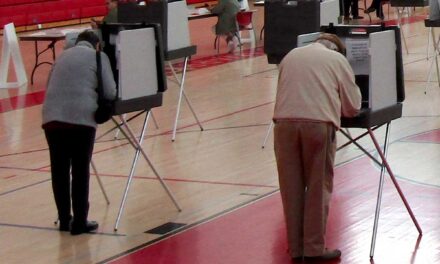Published in the August 5, 2016 edition.
By MARK SARDELLA
WAKEFIELD — While he is a strong advocate for transparency and full-disclosure in law enforcement, Police Chief Rick Smith does not feel that it would make sense for Wakefield police officers to wear body cameras.
In the wake of high profile incidents in Ferguson, Staten Island, Baltimore and elsewhere, the demand for police to wear body cameras has intensified nationwide. Those in favor of police body cameras maintain that the cameras foster transparency in police interactions and help to protect civil rights, particularly in minority communities.
Smith, who is also a vice president of the International Association of Chiefs of Police, fully understands the rationale for body cameras.
“I’m all about full-disclosure and we feel very strongly that the public should know what we do and how we do it,” Smith says, “because it helps to build trust.”
Smith believes that in Wakefield, that trust between the community and the Police Department is well-established.
“I don’t think we need body cameras in Wakefield because of the trust between the community and the police officers,” Smith said. “People know that we police this community in a fair and impartial way.”
He noted that the Wakefield Police Department receives very few complaints.
Beyond those reasons, Smith points out that there are a litany of other concerns that go with the use of body cameras, including citizens’ privacy rights, officer safety, cost and data retention.
“We have to weigh those issues versus community value,” Smith says.
Another concern relates to evidentiary issues, Smith said. Anything that’s on video is subject to being released to the media.
“A body camera in a home can reveal a lot of things that should not be shown to the public,” he noted, adding that doing so “can harm an ongoing investigation by revealing evidence.”
A major concern is privacy.
“Most people who call us are having the worst day of their life,” Smith said. “I don’t want that shared with neighbors. We don’t want to embarrass anyone out there.”
Smith cites ongoing domestic violence situations as an example of how body cameras could wind up exposing victims to being victimized one more time.
“We see some horrific things,” Smith said. “I question the value of sharing those with the people of Wakefield.”
The use of body cameras has to be accompanied by very strict policy guidelines, the Police Chief stressed, such as when they are turned on and off, their use in private dwellings and what is released or not released to the public.
Another issue is data retention. How much of the recorded video should be retained and for how long?
“What do we keep and what do we not keep?” is a question that Smith said must be answered by any police department that decides to use body cameras.
In Wakefield, for example, it would mean 47 officers worth of video for eight hours every day.
“That’s a lot of video,” Smith said. “Data retention is very expensive.”
He added that people don’t like the idea that they are being filmed if they just walk up to say hello to a police officer or if they happen to be shopping and walk past a patrolman.
“Our department has built enough trust that people don’t see the need for our officers to wear body cameras,” Smith said.
Smith says that he can understand the arguments for the use of body cameras in major cities. But he also pointed to a recent study of the nation’s largest cities using police body cameras conducted for the Leadership Conference of Civil and Human Rights. That study concluded that those police departments were failing to protect the civil rights and privacy of residents due to the inadequacy of policies that govern how their officers use body cameras.
While he is open to the transparency that body cameras can offer, Smith said that the benefit has to be weighed in light of the concerns related to cost, privacy, officer safety and the overall benefit to the community.
“I want the scale to tip toward ‘the community wins,’” Smith said. “I don’t want the scale to tip the other way.”




